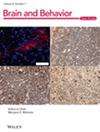Comparison of Subjective and Objective Sleep Quality in Patients With Obstructive Sleep Apnea Syndrome
Abstract
Purpose
This study aims to compare subjective and objective sleep quality in patients with obstructive sleep apnea (OSA), given the high prevalence of this sleep disorder that can affect sleep quality.
Method
This research enrolled 195 individuals diagnosed with OSA, with an Apnea Hypopnea Index (AHI) of 5 or higher based on polysomnography. Participants completed the Pittsburgh Sleep Quality Index (PSQI) questionnaire for subjective sleep quality. Objective sleep quality derived from sleep efficiency reported in overnight polysomnography.
Findings
An analysis of sleep efficiency showed that 12.8% of people had poor-quality sleep. The PSQI was also used to measure subjective sleep quality, and 64.1% of respondents reported having poor sleep quality. No significant correlation was observed between sleep efficiency and PSQI scores. Obesity has a negative correlation (ρ = −0.168, p = 0.019) with sleep efficiency, highlighting the effect of BMI on sleep fragmentation. Male sex was linked to a lower risk of poor objective sleep quality, according to logistic regression analysis (adjusted OR = 0.314, 95% CI = 0.113–0.872). Frequent use of sleeping pills was linked to a lower probability of experiencing subjectively poor sleep quality (adjusted OR = 0.077, 95% CI = 0.024–0.243).
Conclusion
This study highlights that a significant portion of OSA patients have poor sleep quality, subjectively. Although sleep efficiency is an important objective metrics, its lack of correlation with subjective sleep quality in this population highlights the complexity of assessing sleep health and the need for comprehensive evaluation tools in these patients.


 求助内容:
求助内容: 应助结果提醒方式:
应助结果提醒方式:


